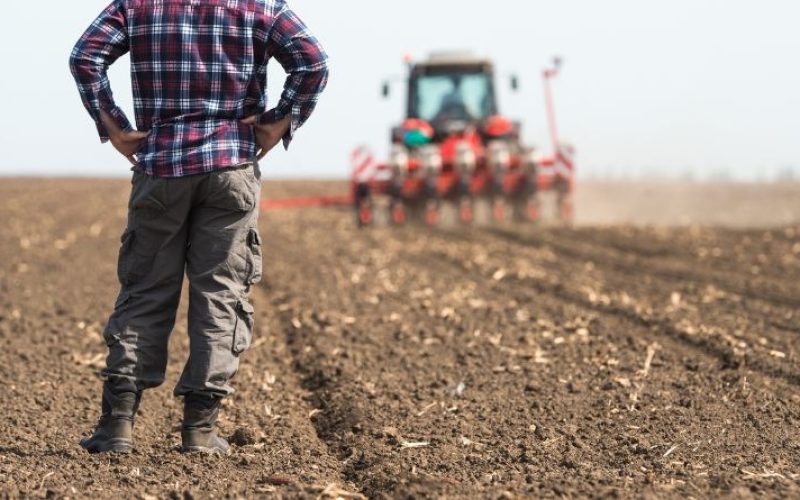The global population continues to rise, leading to an ever-increasing demand for food. As a result, investing in productive farmland has emerged as an attractive asset class for investors. Uruguay, with its unique combination of favorable climate, fertile soil, and openness to foreign investment, stands out as one of the best destinations for farmland investment. In this article, we will explore the advantages of investing in Uruguay’s farmland and the various opportunities available for investors.
Why invest in farmland?
Investing in farmland offers numerous benefits for investors. The increasing global demand for food means that investments in this asset class are likely to see consistent long-term appreciation. Additionally, farmland investments provide an annual cash return, serve as a non-volatile asset, and act as a store of value. Moreover, investing in farmland allows investors to diversify their assets geographically.
Visit our website, UruguayFarms, at UruguayFarms, and fill out the form to get started on your journey towards profitable and sustainable farmland investments in Uruguay.
Uruguay’s advantage
There are several factors contributing to the attractiveness of farmland investing in Uruguay:
Suitable Environment: Uruguay boasts a climate, non-degraded soil, and water availability that are ideal for farming, cattle breeding, and forestry developments.
Stability: The country has a solid legal system, protects foreign investment, and maintains political stability, making it an attractive destination for investors.
Expertise: Non-farmers can easily invest in farmland, thanks to the widespread technical expertise, infrastructure, and farm management available in the country.
Market Transparency: Uruguay’s farmland market is transparent, with online access to soil types and productivity ratings that allow for easy comparison and verification of potential investments.
Investor-Friendly Policies: Uruguay treats foreign and local investors equally, has no limitations on foreign ownership, and imposes no currency exchange controls, restrictions, or taxes on transferring money into or out of the country.
Investment options
Uruguay offers three main options for farmland investors:
Agriculture
Soybeans, wheat, corn, barley, and sorghum are the primary crops grown in Uruguay. The country’s soil quality, climate, and infrastructure have positioned it as a global player, ranking as the 6th largest exporter of soybeans, 5th in dairy products, and 4th in rice.
Cattle breeding
Uruguay primarily breeds Hereford and Angus cattle, with 90% of cattle raised on natural pastures. The use of antibiotics and growth hormones is prohibited, and the country has a high sanitary status, allowing access to top global markets. Furthermore, Uruguay is the only country in the world with 100% traceability of its cattle herd from birth to slaughter.
Forestry/Timber
Uruguay’s pulp and timber industries are well-developed, with the fastest growth rate of eucalyptus worldwide. Major pulp mills are present in the country, and it has the potential to become a leading short-fiber pulp exporter. Additionally, at 80% of Uruguay’s forests, the country has the highest sustainability FSC certification globally.
Diversifying your investments
Investing in Uruguay’s farmland allows investors to diversify their portfolio by investing in different types of farmland, such as agriculture, cattle breeding, and forestry. This diversification helps to mitigate risks and maximize returns, providing a comprehensive and well-rounded investment strategy.
Investing in Uruguay’s farmland: how to get started
Most investors choose one of two options when investing in Uruguay’s farmland:
Outsource management: Investors can hire a farm management firm to handle all aspects of the operation, taking advantage of the widespread expertise available in the country.
Lease out the land: Investors can opt to lease their land, as Uruguay has a very liquid rental market available.
For a seamless investment process, it is advisable to work with a full-service law and tax firm specializing in assisting overseas farmland investors. These firms can help with sourcing farmland according to client preferences, structuring purchases, setting up ongoing farm management, and providing legal and tax services throughout the investment process.
Taxes and services
Farming enjoys favorable tax treatment in Uruguay, with a flat 25% income tax rate on net income and low property taxes. Our full-service law and tax firm specializes in assisting overseas farmland investors. We provide services such as sourcing farmland, structuring purchases, setting up ongoing farm management, and offering legal and tax support.
Conclusion
Investing in Uruguay’s farmland presents a unique and lucrative opportunity for investors looking to diversify their portfolio and capitalize on the increasing global demand for food. With a favorable environment, market transparency, and a range of investment options, Uruguay is well-positioned as a top destination for farmland investments. By taking advantage of the services and resources available, investors can confidently enter the Uruguayan farmland market and enjoy the numerous benefits it offers.

